- Learning time
- 20 minutes
- First play time
- 60 minutes
The Godfather: A New Don
Designed by: Jay Cormier,Sen-Foong Lim
New York, the 1950’s, and you the players are competing families trying to take control of the city – and become the New Don.
The board shows New York itself broken into six districts, with each region having several neighborhoods within it. There’s also a Favor Track along the river, and a Muscle Track along the bottom of the board. Each player begins with a bunch of soldiers, which they’ll use to take control of neighborhoods during play, and five dice in their own colour, which are hidden behind a screen. In each round, you’ll be spending your dice to add soldiers to neighborhoods by meeting certain requirements – sets of two, three, four or five of the same number, and the occasional run. Everyone rolls their dice behind their screen, then on your turn you reveal them all, before returning the dice behind their screen as they are ‘spent’.
That’s pretty straightforward, but there are a few choice wrinkles to consider here. First off, in every round one player will be the current Godfather and when everyone rolls their dice – simultaneously – the other players must make an offer of one die to the Godfather, that they can use this round. The Godfather can either accept the offer or ask for a different numbered die. If the player has such a die hidden behind their screen, they give it to the Godfather. If they don’t, they lift their screen up to prove as much, and the Godfather gets nothing. In either event, the offering player can add a soldier to the Favor track on a matching number.
So being Godfather is very handy, as you’re taking dice off other players and giving yourself more flex on the board. But to be the Godfather, you need to spend dice in order to move up the Muscle Track. Whoever is furthest along at the end of the round will be Godfather in the next round! Note too that players further up the Muscle track and push those lower down out of a district.
There’s also the possibility of spending dice to send a soldier gambling at Las Vegas – the Godfather will roll three Vegas dice at the start of each turn, and if your number comes up, that’s extra dice for you this turn! And finally, don’t forget the soldiers on the Favor track – they can come in very handy as the Favors give you a bunch of handy powers when you spend them: re-roll dice, add an extra die to a roll, move a soldier to an adjacent neighborhood, change a die to any number or add or subtract 1 to a die in your possession.
The game ends either when any one player runs out of soldiers or a district is full. Points are scored for having the most soldiers in each district (there are also points for second and third place) plus any soldiers left in front of you.
Joe says
A nice area majority affair - albeit pretty wafer-thin on theme. The offering to the Godfather and the muscle track have thematic relevance, but it's not gameplay that makes you feel like a Don. Beyond that, though - the game itself is fun.
The guru's verdict
-
Take That!
Take That!
For a game about gangsters there was always going to be some Take That, and it's mainly manifest in the Muscle Track - pushing past someone who has just spent dice hoping to be Godfather next round, or using your superior muscle to bump them off the board.
-
Fidget Factor!
Fidget Factor!
After a first play, the game moves pretty rapidly.
-
Brain Burn!
Brain Burn!
You're pretty much beholden to what dice you have, and the longer the game goes on the fewer ways there are to spend them - the board begins a wide open plain of possible extortionism, but as time passes, increasingly becomes a power struggle on the muscle track.
-
Again Again!
Again Again!
Dice offer randomness here, but there's also the balance to be struck between being the Godfather, and the dice you need to spend to keep yourself in that dominant position.

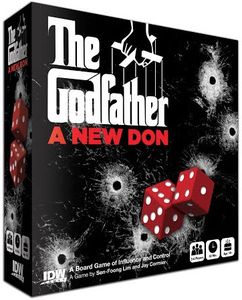
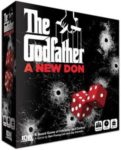
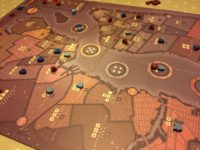
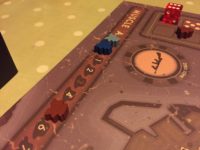
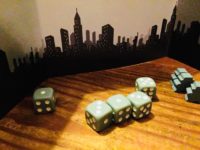
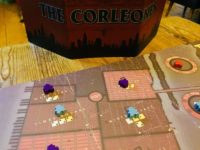


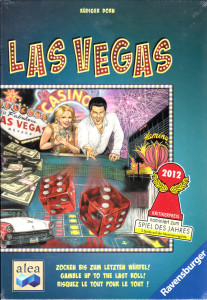
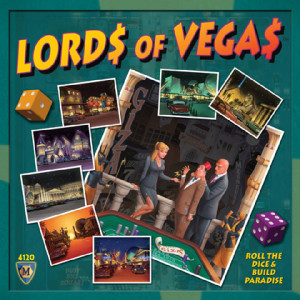
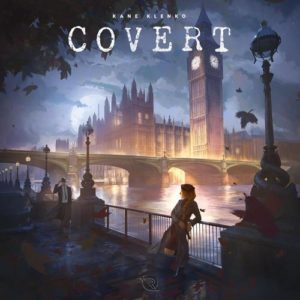
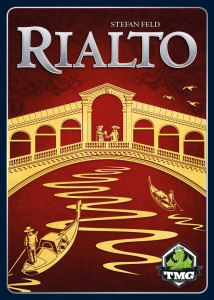
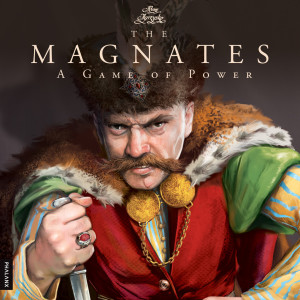
Sam says
Although I like the looks of the slightly murky board with its reds and greys, it's hard to tell the difference between one district and other without peering down at the neighborhoods (each district is defined by the numbered dice you spend to place soldiers there). Not making the districts visually distinct seems a pretty basic oversight for a game that's about controlling districts! That gripe aside though, this was a fun and feisty affair where luck plays a part, but so does tactical, reactive play. Tie-in products are often pretty lame but like A Game of Thrones, there is a bona fide, enjoyable experience here.